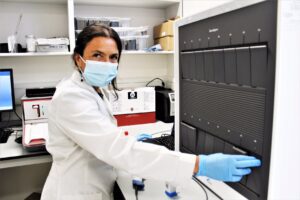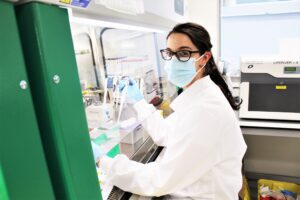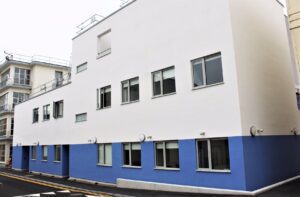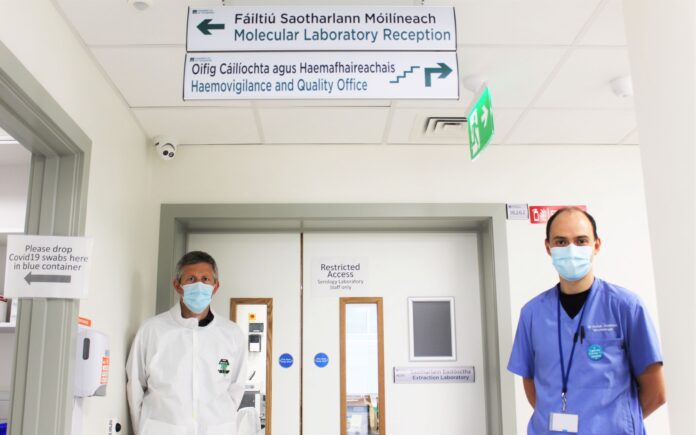UNIVERSITY Hospital Limerick has armed itself with a €4m “state of the art” laboratory, which will be one of the nation’s key weapons in the fight against COVID-19, because of its ability to detect variants of concern, and track outbreaks of the silent enemy faster and more accurately.
The doors of the molecular lab with Whole Genome Sequencing enhances UHL’s ability, not only to track COVID, but other diseases as well.

According to UHL, the laboratory has “boosted” the hospital’s already significant COVID-19 testing capacity, “and provides the potential, post-pandemic, to increase the scope of molecular testing in infectious diseases”.
COVID-19 testing capacity in the hospital has risen by 50%, increasing by approximately 200 tests per day to approximately 700.
“And the new laboratory’s Whole Genome Sequencing capacity, with its ability to detect SARS-CoV-2 variants of concern (VOC), such as the Delta variant of the virus, and track outbreaks in a more accurate and timely manner, could position UHL as an important element in the national response to calls from the European Centre for Disease Control for tracking COVID-19 and its multiplicity of viral lineages,” read a statement released by the UL Hospital Group.
“PCR (polymerase chain reaction) testing of nasal and throat swabs is considered one the most sensitive tests available for SARS-CoV-2,” it went on.
Colm McDonnell, Chief Medical Scientist, UL Hospital’s Group, explained that the lab technicians are working in separate work areas with separate air pressures, designed to extract any potential contaminants, “for the most accurate results and to avoid any potential for cross-contamination” of results.
UHL has “one of Ireland’s busiest hospital COVID-testing services”, and Dr Stapleton, Consultant Microbiologist explained the new lab is connected to the hospital’s “pneumatic chute system”, which not only shortens the turnaround time of transporting samples to the laboratory, but also minimises footfall throughout the hospital building.
With PCR test capacity now complemented by Whole Genome Sequencing, Dr Stapleton, who represents the Irish Society of Clinical Microbiologists on the steering group of the National SARS-CoV-2 Surveillance and Whole Genome Sequencing Programme, said the new lab has “huge potential” as a centre of molecular diagnostics, across all laboratory disciplines.

Photo courtesy of HSE
To illustrate the efficiency of the new testing system, Dr Stapleton explained that one of the instrument’s in the new lab, which is smaller than a child’s tablet, has a capacity of 12-96 samples per week, and can not only efficiently detect the virus, but can also trace its lineage, and provide even more detailed analysis, such as individual mutations within a virus strain, which can then be used by outbreak control teams to track the spread of outbreaks.

Photo courtesy of HSE.
The “WGS” instrument has “a wealth of applications” beyond COVID-19, and could be used to investigate outbreaks of most other diseases, including the potential for helping to diagnose cancers and identify the most effective treatments.
“It is very exciting to watch these things come to fruition. Whole Genome Sequencing is now where molecular diagnostics was at 20 years go,” explained Dr Stapleeton.
“It is currently moving out of the academic laboratories and into the clinical laboratories, and it’s this transition that’s the key to maximising benefit for patients, and get it working for patients.”












